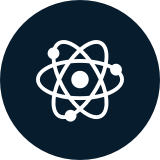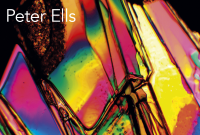
by Micheal Meacher
What is the purpose of existence, and what are we here for? This book seeks to answer just that question. Government minister seeks meaning of life, the universe and everything
978-1-84694-263-1, $19.95/£9.99, paperback, 251pp
978-1-84694-631-8, $9.99/£6.99, ebook
Impressive book, it is exceptionally well-informed and wide ranging. Scientific Network Review
Meacher draws a rich and detailed picture of the complexity and inter-relationship of life from its origins onwards. He sees humanity as driven to discern the rules that govern the life systems of the universe, while all the time being unable itself to live by them. Peter Cruchley-Jones, Reform
Refreshing, methodical and well-researched. The product of a mind that is organised and thinks clearly. Canon Gavin Ashenden, Church Times
The books is an interesting - if challenging - experience, and represents one man's honest attempt to cope with the apparently conflicting aims of science and religion. It's a valuable contribution to the rapidly growing literature on this top, becuase it brings personsal and unconventional insights. David Williams, Faith and Freedom
A thoughtful and informed account of where we have been as a species. Frank Regan, Renew
This is an impressive book, spanning some very wide areas and bringing them together creatively. Dr George D. Chryssides, Head of Religious Studies, University of Birmingham
Excerpt: The framework of inquiry
Que sommes nous? D’ou venons nous? Ou allons nous? There is really only one question for human beings that in the end matters. That is, what, if any, is the purpose of existence, and what are we here for? It is a question that has underlain religious conviction and philosophic inquiry throughout human history, and to which scientific rationalism in recent centuries has added some important insights. It highlights two contesting views of the nature of reality: is there a purpose behind the universe, and if so, is the evolution of man somehow related to that purpose, or is it a mechanistic universe driven by blind natural forces in which there is no ultimate purpose and no meaning of life? Or is there indeed some alternative third explanation? These questions will recur throughout this book and in every case, as each dimension of human understanding and experience is analysed, the question is posed: what does this tell us? What does this mean?
These are also clearly questions to which there is no final and absolute answer. Each generation, drawing on its inheritance of understanding, builds on its own experiences, new discoveries and fresh insights to construct its own special approach to ultimate meaning. For centuries until the Enlightenment, religion seemed to offer an authoritative repository of final truth, until the rise of empirical scientific method removed its mantle of certitude. But just as religion survived the onslaught of rationalism by adopting a more pragmatic and flexible approach to religious phenomena, in the same way scientific propositions have come to be seen, so far from being fixed and invariable descriptions of the world around us, rather as constantly shifting approximations to an endlessly elusive underlying reality. ‘Truth’ is not an objective element out there; as preached by scientists it often turns out to be no more than prejudice inspired by prevailing social and political beliefs.
What then is one to believe about the ultimates of human existence? Regretfully, too many start from an a priori position.
Either that is a religious standpoint which is taken as fundamental based on experience or faith, and all other observations of human affairs and of the universe are fitted to this pattern and its presuppositions. Or it is a starkly material framework which precludes all non-cognitive evidence as at best fantasy or at worst fraudulent. In either case the starting point is usually preconceived, and judgements are adopted about the world to rationalise pre-existing attitudes. What this book seeks to do is rather to assess the evidence – the whole range of it – without a predetermined worldview as a premise, and to decide, as objectively as possible, what the evidence on balance points to.
In one sense, such objectivity is a chimera. We all approach matters of judgement with a set of values acquired throughout life which propels us to one particular interpretation or another.
All that one can do, by being conscious of this, is to try to resist the impulse and to remain open to the widest range of interpretation of phenomena. For the questions to be answered are almost metaphysical in form – not so much what is the evidence, but what is the relevant evidence, and what does it mean? And how do all the relevant strands of human experience – physical, psychological, aesthetic, moral and spiritual – connect together, as they must in some way since reality is indivisible?
But the question goes a great deal wider than the centuries-old disputes between religion and science. It requires at the outset a determination of the total framework of eligible evidence. For any final conclusions will clearly depend heavily on what categories of data are regarded as admissible, what weight is attached to different kinds of evidence, and how the relationship between them is assessed. Furthermore, the ‘meaning’ of things is not a mono-dimensional concept, to be ascertained and verified by experiment. It is a matter of interpretation, values and above all perspective, and there can be no certainty that what seems to offer an intellectually satisfying insight in one generation will not be superseded by deeper understanding of the same phenomena in the next.
Categories:
0 comments on this article








